On September 2, 1913, in the small mining town of Glenbuck in Ayreshire, a boy who would become a legend was born. He was one of 10 children and his name, Bill Shankly, now echoes in eternity.
For his parents, John and Barbara, raising their five boys and five girls in a small cottage would have been an uphill struggle in which success relied on every member of the family doing their part.
Even at a tender age, Shankly knew the power of the collective.
Traces of his formative years can be found in his many quotes and witticisms, and they run through his philosophy like a golden thread. It was upon this belief in the power of the collective that Bill built a legacy fit for a king.
Shankly knew what it took to be succesful in life as much as in sport. He would have approved of the banner on the Kop that screams unity is strength, but he was also driven by a desire to be the best amongst his peers, in all aspects of his life.
Bill famously made his players continue to play 5-a-side matches, in which he took part, until his team won, no matter how long it took. He once said of his time in military service: “If you and I were mopping the floors, I would want my floor to be cleaner than yours.”
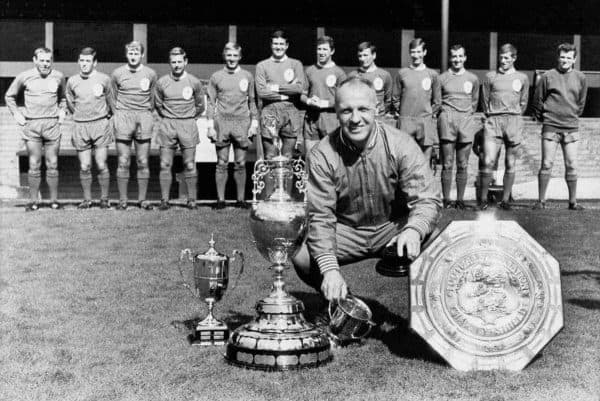
For the Scot who took up the reigns at Anfield in 1959, you had to strive to be the best you could be, no matter how menial the task. People could only be succesful in a family, a community or in a team, if every member fulfilled their role to the best of their ability.
In order to drive home the point, he would emphasise how many of his players had achieved individual honours through their collective effort.
Shankly never forgot his roots. He was once asked asked whether he felt under pressure before a cup final. His response was to lecture the journalist on what real pressure was:
“Pressure is working down the pit. Pressure is having no work at all. Pressure is trying to escape relegation on 50 shillings a week.
“Pressure is not the European Cup or the championship or the cup final. That’s the reward.”
The club Shankly took over in 1959 had just been eliminated from the FA Cup, by Worcester City. They had been languishing in the Second Division for five years and he would describe Anfield as the biggest toilet in Liverpool.
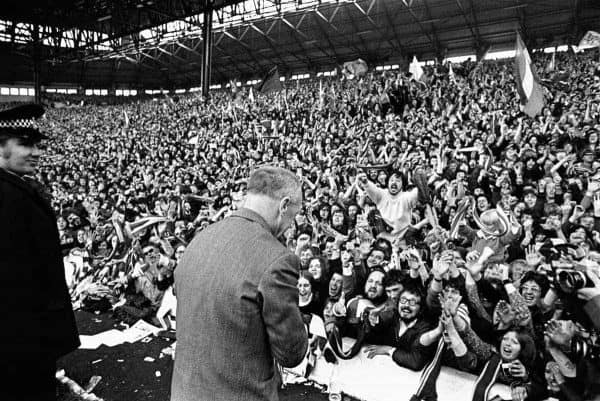
However, he immediately saw a community that was as fiercely loyal, passionate and witty as he was. In the Kop, he saw a group of supporters who knew what it was to work, fight and play hard and with whom he could forge a timeless bond.
“Liverpool have a crowd of followers which rank with the greatest in the game. They deserve success and I hope, in my own small way, I am able to do something to help them achieve it.
“I make no promises except that from the moment I take over I shall put everything into the job I so willingly undertake.”
He understood the uniqueness of Liverpool supporters and their spirit of collectivism and community appealed to him deeply. Take this quote for example:
“The word ‘fantastic’ has been used many times, so I would have to invent another word to fully describe the Anfield spectators. It is more than fanaticism, it’s a religion.
“To the many thousands who come here to worship, Anfield isn’t a football ground, it’s a sort of shrine. These people are not simply fans, they’re more like members of one extended family.”
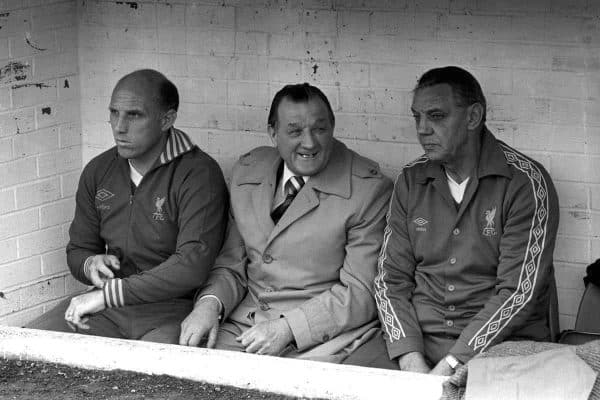
Bill’s belief in loyalty and fairness saw him keep faith in Bob Paisley, Joe Fagan and Reuben Bennett, who had all been part of the old setup. They would become the cornerstone of the famous ‘Boot Room’ cabal that would successfully plot the conquest of Europe.
The stories of Shankly have filled many pages and hours of film footage. His talent for spotting a player, his charismatic style and his ability to articulate deeply complex thoughts and ideas in the language of the people are all factors that mark him out as a unique and special leader.
His ideas and wisdom are legion, and each communicated with a specific purpose in mind. His barbs about Everton, for example, had nothing to do with a lack of respect for Liverpool’s neighbours.
Instead, they were intended to puncture what he believed was an inferiority complex suffered by his own players.
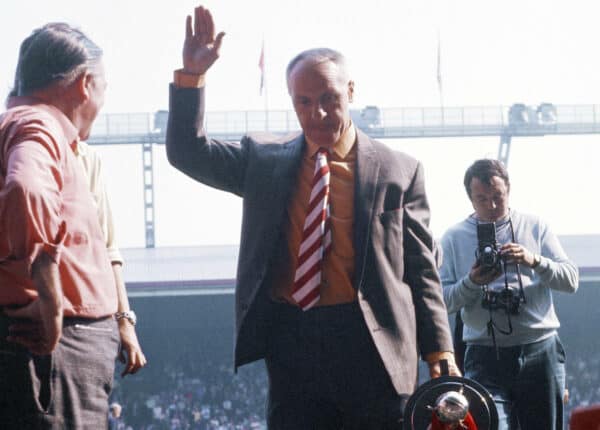
Others, such as football being more important than life or death, or about socialism being the only way to be succesful in football and life, have all passed into folklore.
However, there is a less famous lecture given by the great man that perhaps says more about his vision and attitude to life, people and purpose than all the others. Consider these words:
“If I became a bin man tomorrow, I’d be the greatest bin man who ever lived. I’d have everyone working with me, succeeding and sharing out the success.
“I’d make sure they were paid a decent wage with the best bonuses and that we all worked hard to achieve our goals.
“Some might say, ‘ah but they’re only bin men, why do we need to reward them so well for a job anyone can do?’. But I’d ask them why they believe they are more important than a bin man.
“I’d ask them how proud they’d feel if their dirty city became the cleanest in the world. Then ask who made them proud? The bin men.”
Thes words are about the nobility of labour, commitment to service, and a desire to be the best no matter what your job is, and a belief that everybody has value and deserves to be rewarded for their efforts.
This is the vision that pulled Liverpool Football Club, its players and supporters together and drove them to greatness. This was Shankly’s vision.
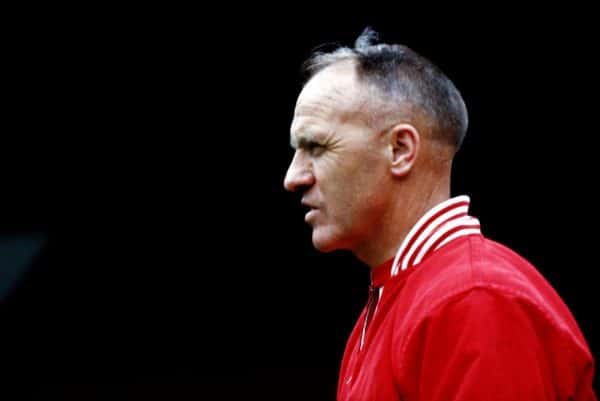



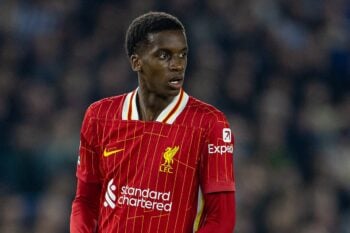


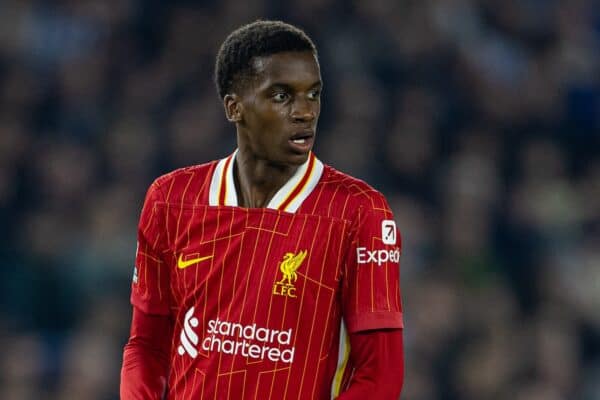


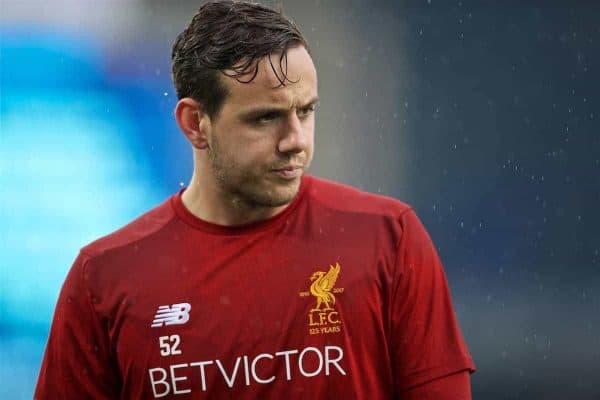


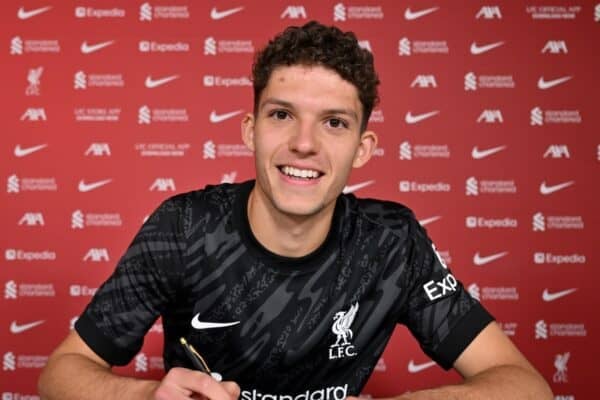

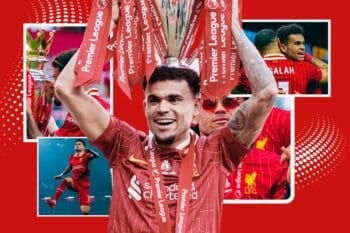
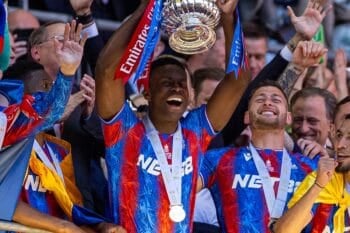
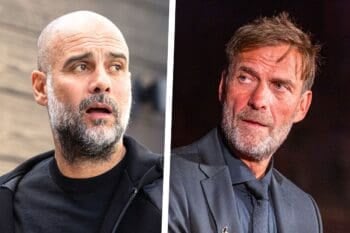
Fan Comments